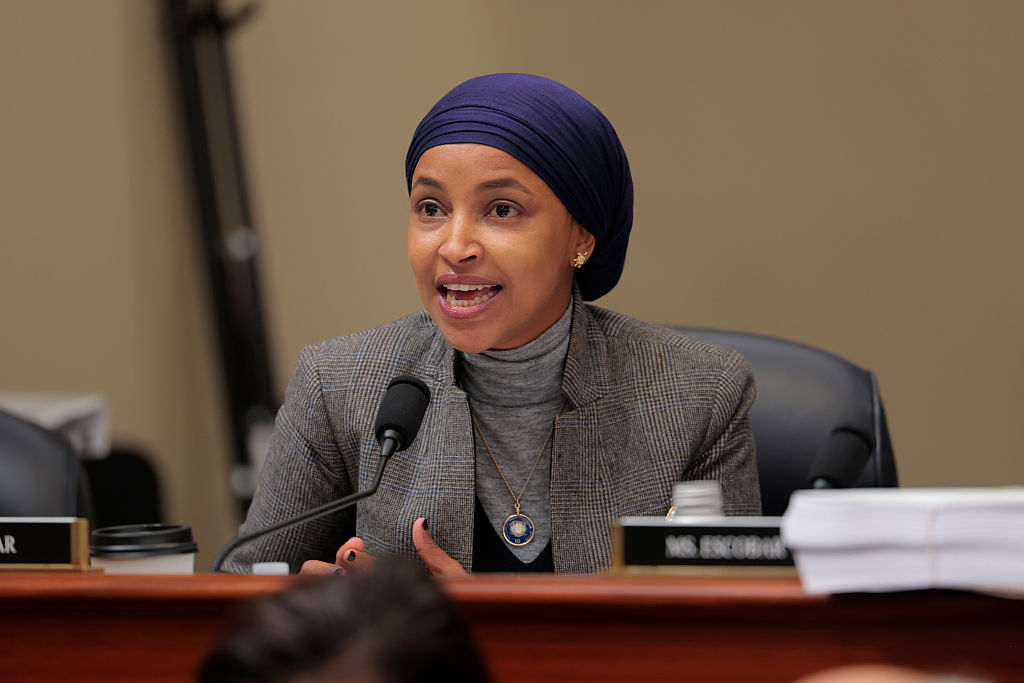The Front Page: Jemele Hill Tells Her Own Story
The Front Page: Jemele Hill Is Telling Her Truth
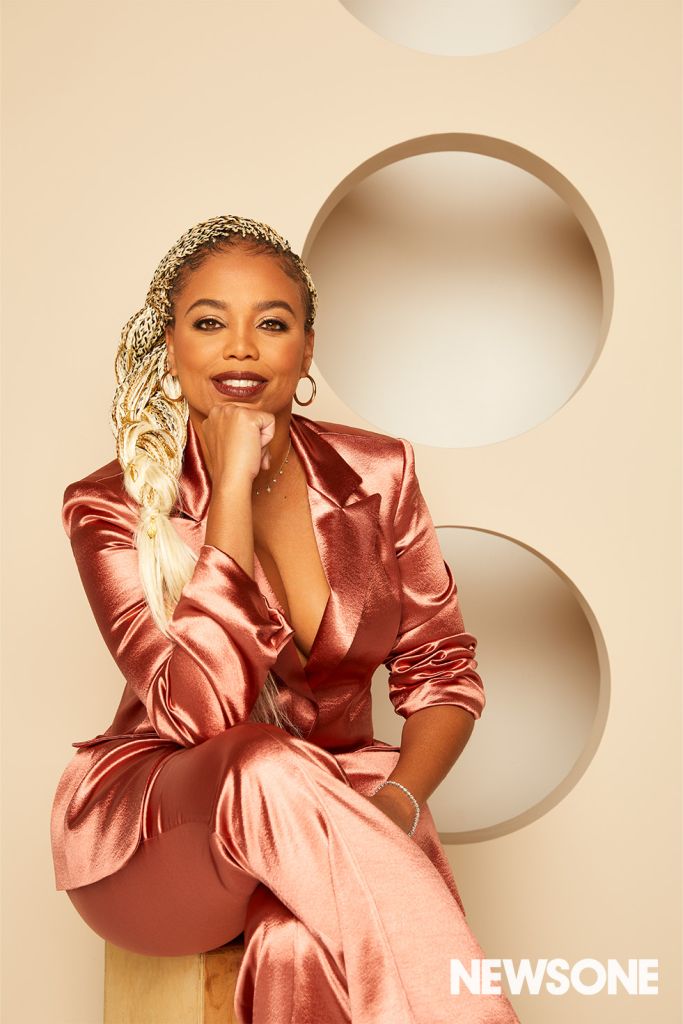
Source: Michael Rowe for NewsOne
Words: Bruce C.T. Wright
Interview: Clarissa Brooks
We’ve all seen Jemele Hill on television and in print, always expertly waxing poetic about the issues du jour with her signature convincing style of communication that’s helped propel her career to enviable heights.
And now, in the inaugural digital cover for NewsOne’s new Front Page editorial series that recognizes and celebrates agents of change around the country making waves in their respective communities, Hill goes into great detail about her journey from a humble start in Detroit all the way to the top of the journalism world complete with a thriving podcast network and a new memoir, among other notable ventures.
From addressing her experience writing her first book to how the process affected her relationship with her mother, Hill got candid with journalist Clarissa Brooks during their recent conversation about Detroit, Black history, her influences growing up, the optics of having teachers from an early age who looked like her, the concept of mentorship, the self-imposed obligation of amplifying the voices of Black women and much, much more.
The following discussion feels more like two old friends catching up than a formal interview, underscoring how personable and forthcoming Hill is as we learn more about her life, career and future.
This interview has been edited for length and clarity.
Clarissa Brooks: How did the book tour go?
Jemele Hill: The book tour went great. We did a leg in October through November. Selling a book is so much different than any other thing that I’ve done, selling and promoting a book, I should say. So it was pretty intense (laughs) because I had not only book events but a ton of media appearances to do. So these were some pretty long and arduous days, but it was really rewarding to see upfront and personal, like how people responded to the book and some of the stories that I told in the book. And so, the fact that I got such positive feedback was just really special and overwhelming.
Clarissa Brooks: Truly. I think for most journalists and writers like myself, that’s the mountaintop. And to see folks doing it, I’m always like, ‘okay, it’s possible.’ (laughs) Wanted to start off with a check-in question that feels appropriate for Black folks in general, which is just: In this time, in this place, how is the world treating you and how are you treating the world?
I also want to be able to amplify Black women whose voices deserve to be heard.
Jemele Hill: Well, I think there are almost two worlds you have to consider. Like, there’s your personal world where you have the people who really know you who have more of an intimate look and window into your life. And, those people, you know, my husband and my mother, you know, other family, close friends, they treat me wonderfully (laughs). So I’m very happy with those relationships.
Now, the wider world is a different story.
But like every other time in my life, there are definitely some professional challenges that I’m having to try to get a hold on. Obviously, there are professional anxieties that I deal with all the time. And now that I’m in a role where my career has shifted more into entrepreneurship, like on a daily basis, there are dozens of decisions that need to be made. And it is different when you realize that you are responsible for people’s livelihoods, that’s a different level of responsibility. And that can be extremely stressful because you want to make sure that you take care of the people that you have great working relationships with that have played a role in getting me to this point. But that’s not always easy to do, because sometimes you have to make some hard choices. And so it can be a stressful existence. It can be quite the path is what I’ll say (laughs).
Clarissa Brooks: I definitely understand that. Being someone’s editor, making decisions and supervising people is definitely an interesting place to be in.
Jemele Hill: (laughs) It’s funny, I was saying to a friend of mine the other day, that when I was the managing editor of my college newspaper, I vowed to never be in charge of people ever. And so it’s very ironic to me that I’m in a position now where I’m employing people. I swore I was never gonna do this again. And yet here I am (laughs).
Certainly no one from Detroit is any stranger to having to work hard. Having to hustle, it’s just kind of built into our bones.
Clarissa Brooks: I wanted to get into Detroit a little bit. I’m from Charlotte, North Carolina, and growing up in the South, I felt such a really clear pride about being Black. And then I met Black folks from Detroit… (laughs).
Y’all are different. Y’all are very different. And I saw in folks from Detroit and folks from Chicago, this love for community and this love for where you come from. Specifically, you speak about it in the book, but what was the political landscape growing up in Detroit as a kid?
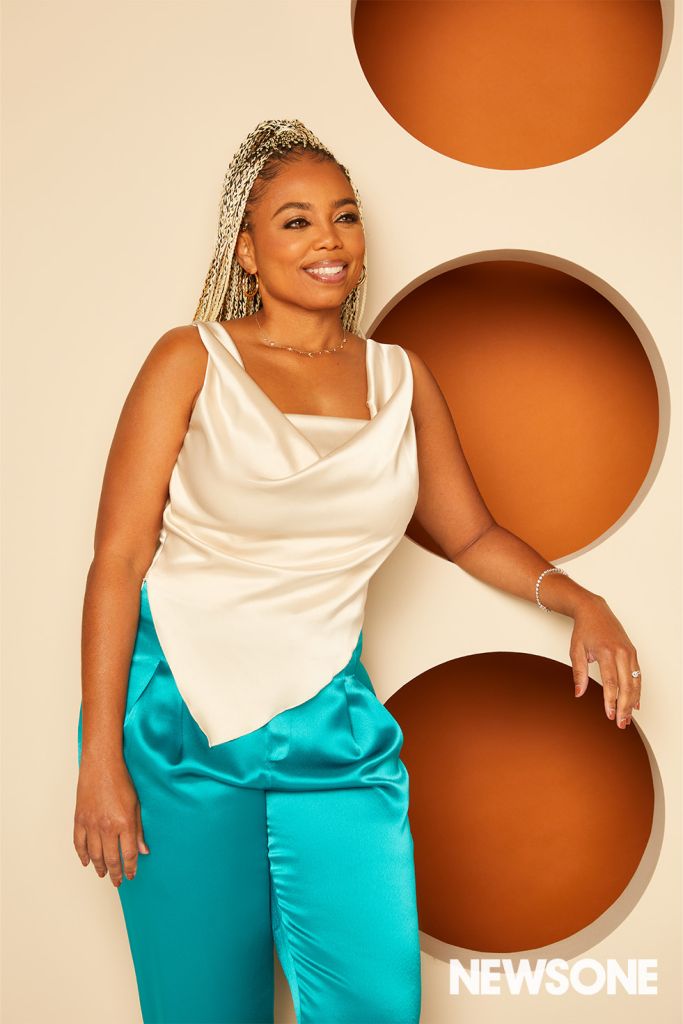
Source: Michael Rowe for NewsOne / Michael Rowe for NewsOne
Jemele Hill: So, when I was a kid, we had a mayor named Coleman A. Young, and he was the city’s first Black mayor. And Coleman Young was a real source of pride for a lot of us because not only did he look like us and act like us, he didn’t code-switch either. And he was so unapologetic about how he chose to lead in that position that it was very inspirational and aspirational for a lot of us who were watching at the time. And Detroit was going through some significant challenges with a very high unemployment rate compared to what the rest of the country looked like. It is a blue-collar city because, obviously, it’s an auto factory town. And that breeds a much different mentality, I think, in the people there. That’s why certainly no one from Detroit is any stranger to having to work hard, having to hustle.
It’s just kind of built into our bones. But there was this very prominent racial dynamic because you had all the white people, or the majority of white people, living in the suburbs and surrounding suburbs because we were still feeling very much the impact and effect of white flight. And after the riots occurred in Detroit in the late ’60s, that’s when it was a flood of white people who left the city. And as people who are from similar places where that’s happened, the reason why that is such a destructive force is that it erodes the tax base and the services that come along with it. You know, just basic services that cities of Detroit’s size need. Suddenly, it weakens the ability to do that because you have a majority part that is left.
And there was a very strong divide between the city and the suburbs growing up as a kid. You know, the reason that Eminem named his movie Eight Mile is those eight miles separate the city from the suburbs. And if you’re on one side of Eight Mile, that’s the side you make sure you are acting a certain way because the police will respond much differently to you than on the other side of Eight Mile, which is the Black side.
So it was just a lot of division. And because of the crime rate and the infiltration of drugs, people considered Detroit to be a dangerous, unworthy place. And because we knew that’s how people thought of us, it only made us want to put on for the city even harder and love it even harder. So when people meet people from Detroit, the level of pride and affection we have in our city, I feel like it’s different. I know everybody is proud of where they come from, but we probably take it to an annoying level, different level. Detroit is definitely in the building, OK? And we’ll tell you about the entire history of Detroit.
Clarissa Brooks: What high school you attended… (laughs). Like in Chicago, the folks [in Detroit] go so hard for it.
Jemele Hill: They do. And, they are very similar. But the one thing I will say about Chicago, part of the reason I think they go as hard as they do: So many people from Detroit have relatives in Chicago.
Clarissa: Cousins…
Jemele Hill: Yes, I have cousins, like half my family grew up in Chicago, so we’re sister cities, so we act very similarly. A lot of Mississippi and Alabama in both of these cities.
I just think that the pride and affection we have right in our city is very unique because we’ve had to withstand some really challenging times. We have been the butt of national jokes many, many times and moments. And it only makes us love on Detroit harder because we know we need it.
Clarissa Brooks: I wanted to know a little bit about who in that community was showing up for you? Was it friends, was it cousins? Was it teachers who were the folks that were making sure you were getting to school safe, that your shoes were tied? Somebody puts some lotion on your knees (laughs)…
Jemele Hill: … and wipes the crust out my eyes and all.
Clarissa Brooks: Absolutely.
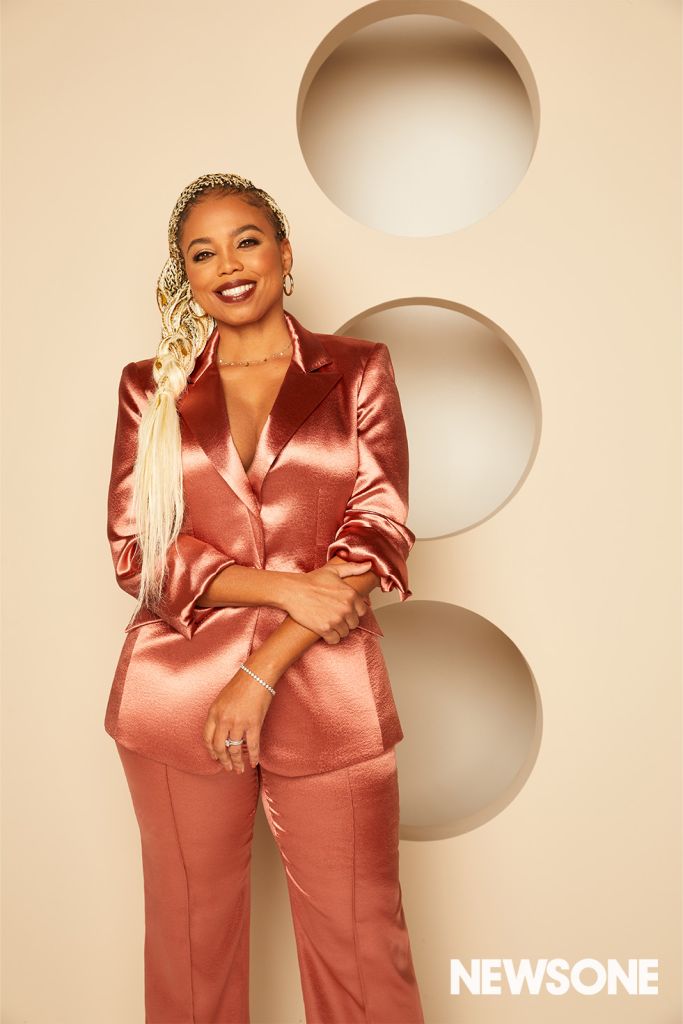
Source: Michael Rowe for NewsOne / Michael Rowe for NewsOne
Jemele Hill: Well, as with everything, it starts in your house. And my mother was definitely that person, as was my grandmother. And they were two huge influences on me as I grew up in this city. And especially, you know, as a family, we went through a lot of challenges. But they still had expectations and standards. Getting an education was one. And because it was so important to them, it was by extension important to me. So the idea of me going to college was a foregone conclusion. It was never a thought process that I was not going to college. And I’m very thankful because those are the things that they instilled in me outside of that, and this is something that really amazes me.
I run into people all the time, Black folks, who talk about how when they grew up, they didn’t have any Black teachers. And that was so stunning to me because Detroit is Blackity Black-Black-Black. All my teachers were Black. And while the idea of, say, Black History Month – we knew what it meant, obviously. But Black History Month wasn’t a big deal because Black History Month happened eight months out of the school year (laughs). Because you have Black teachers, they understand the importance of Black history all the time.
And that’s because they took the additional step of making sure that we knew that learning about, you know, Black cowboys and Black farmers and the impact that Jim Crow had on them. Just other things that I don’t think would be the typical experience for a lot of Black kids growing up in America. And I was so grateful for the teachers that I had. They all saw something in me that I didn’t even see in myself. That’s why I intentionally, in the acknowledgments in my book, thanked several of the teachers who really made an impact on me. I thought it was really important that they knew that what they poured into me, it bore really good fruit.
Clarissa Brooks: Something I really wanted to get into is the art of writing a memoir. I wanted to talk about the book deal process a little bit. I’ve heard and read you talk about this, like your relationship with your mom and getting these stories notated. But as an only child with a Black mother who also read her journal… (laughs) … I didn’t broach that conversation and be like, ‘all right, we have to sit down and pen to paper on this.’
I knew that people would really be probably surprised by a lot of the childhood traumas that I had.
Jemele Hill: Well it was funny because when my mother and I revisited her reading my journal, we laughed quite a bit. Now, I guess having lived a little bit, I still think for Black parents there’s always this very delicate balancing act between you wanting your children to maintain the naivete of children, the innocence of children.
My mother’s childhood experience – as difficult as mine was, hers was probably 10 times more difficult. So she’s thinking about her own path and how she started doing drugs at an early age, and she was concerned and wanted to be sure that wasn’t going to be my path, either.
What she did discover was that I was angry about how she was behaving, and I let that anger loose in this journal. And so as we revisited that conversation—at the time, putting children in therapy was not a thing, especially for Black kids and Black parents.
And [her mother] came from a generation of parenting where frankly, physical punishment was the only way that you dealt with issues that probably should be talked about, discussed, handled in a more kinder way. What she didn’t understand at the time was that my journal and diaries were my safe place; they were my therapist.
But us being able to have that conversation for the memoir, it was very cleansing and freeing for both of us. And me understanding more of some things now about her life, knowing her full story that I didn’t understand then, it helped me have more grace with those actions than at the time I considered to be very damaging and hurtful.
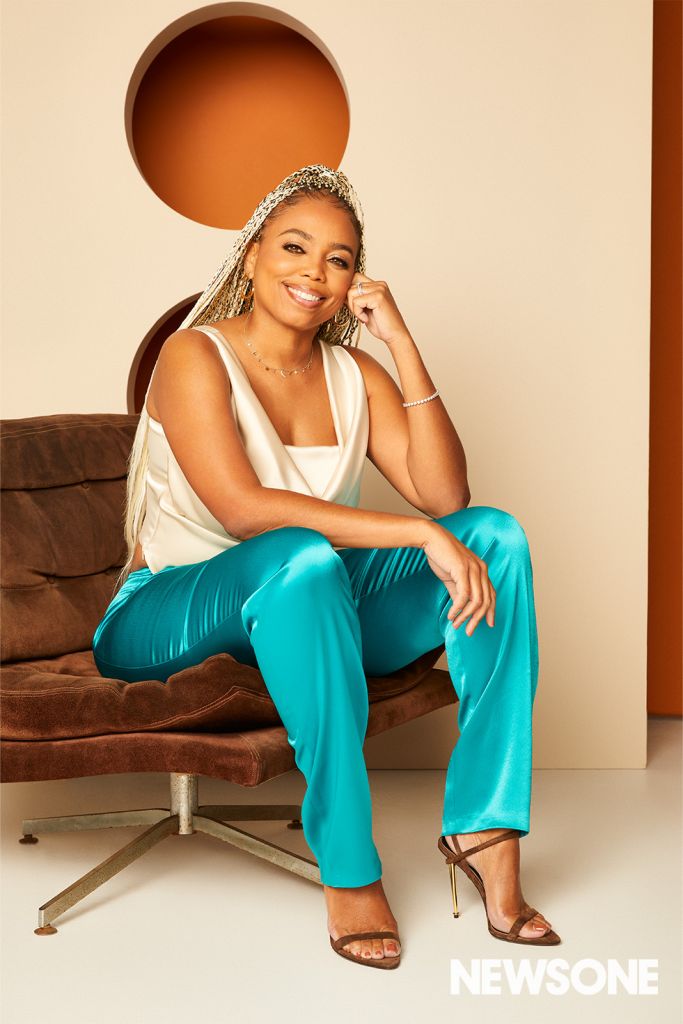
Source: Michael Rowe for NewsOne / Michael Rowe for NewsOne
Clarissa Brooks: I really appreciated this book and seeing some of my own experiences in it. I want to talk about that moment when a book deal happens; when you were comfortable and ready to sit down and start on this. What was that moment for you?
Jemele Hill: A memoir is not something I ever intended to write. I didn’t really want to write about myself. Now, I want to write fiction. And I didn’t have any problems drawing from experiences and then turning that into some, you know, fictional content. But writing about real-life events and things that happened to me, it did not have much appeal to me. And when the book deal finally happened, I’m not the type of person who does things halfway. And I knew that if I wanted to really commit to this memoir, and I really wanted it to resonate with people, I had to be as open, honest and transparent as I possibly could.
It also presented me with an opportunity for people to understand the perspective that I have and what shaped me. And I knew that people would be really probably surprised by a lot of the childhood traumas that I had. How I was able to sort of build my career and what my journey looked like. I know it’s not like what they thought it was (laughs), you know? So for me, the moment that I began this process, it was one that was liberating. And it was also one that was very intentional because of what I wanted people to take away from it.
I wasn’t a huge memoir reader before I started writing a memoir. And then I started reading a ton of memoirs because I was just very interested in story construction, language, just the different approaches. I was more approaching it like a writer, like I was a writer writing about somebody else’s story. This is where I think me being a career journalist was very critical to this process because I’m not sure if I would’ve had the wherewithal to approach it the way that I did it if I did not write for a living.
Writing for a living allowed journalist Jemele to treat myself like my own interview subject. I think that was a really core piece in the writing process of this memoir.
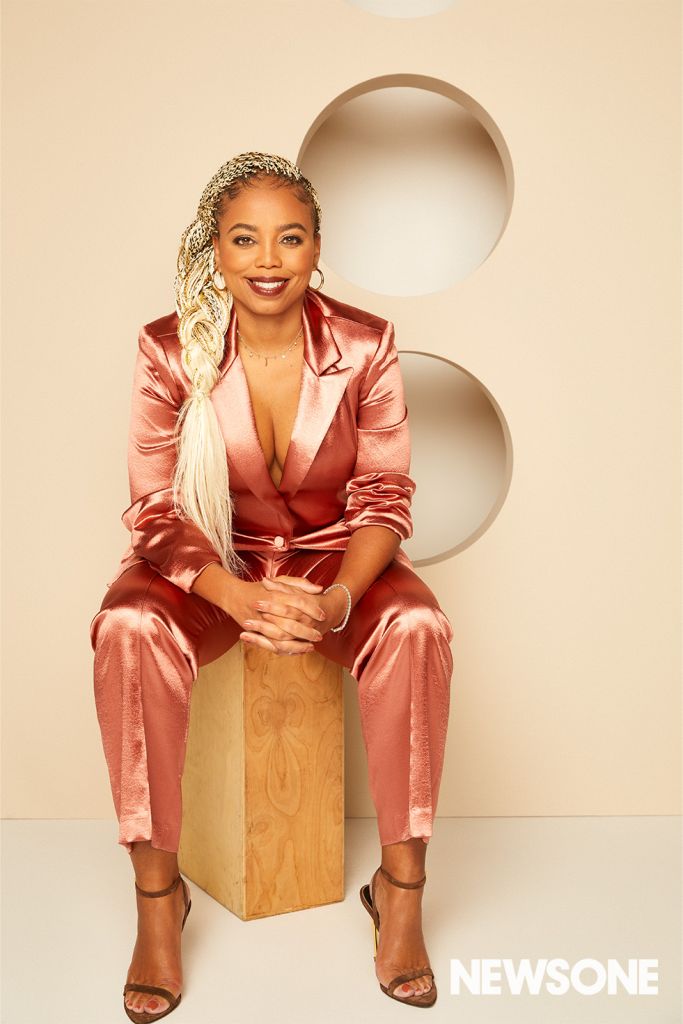
Source: Michael Rowe for NewsOne / Michael Rowe for NewsOne
Clarissa Brooks: Which memoirs did you read?
Jemele Hill: I read them across the spectrum because I really wanted to get a wide sort of knowledge base about how people were approaching this. So I read Demi Moore’s memoir, which is really good. I read Sally Fields – excellent. Jenifer Lewis.
Clarissa Brooks: I’ve heard that Jenifer Lewis’ is so good.
Jemele Hill: Oh, Jenifer Lewis has lived some lives! Boy, that woman is incredible. Oh my goodness. She is very, very incredible.
The manuscript was being edited when I read Viola Davis’ memoir, which is exceptional. That might be the best memoir I’ve ever read.
I always have to be watching something [on TV] when I’m writing.
Demi Moore, I’ve always liked her as an actress, but that is not somebody whose memoir I normally would’ve read. But I did that by design because I wanted to see how I respond as a viewer to somebody’s memoir I probably wouldn’t buy. Hers and Sally Fields’. And they turned out to be really exceptional.
Clarissa Brooks: I love to ask folks – what are your best writing conditions? Like, do you need a blanket? Is it a snack? What does it look like when you’re really tuned into your writing?
Jemele Hill: So my writing conditions are different for writing for, say, the Atlantic and writing the memoir. But they’re also both the same in the sense that I always have to be watching something when I’m writing. So when I was writing my memoir, the two shows I watched the most were, This Is Us and Grey’s Anatomy.
Clarissa Brooks: So you’re trying to cry.
Jemele Hill: Well, you know, everybody was so into This Is Us. I was like, ‘let me see what this is about.’ And I was like, ‘oh my God, the storytelling is exceptional.’ And Grey’s Anatomy has like 900 seasons, which is the best part. So it’s great background noise. It’s something you don’t have to quite pay attention to. And you could still like, sort of check-in and be like, ‘Oh, okay, so this person died. All right. Got it.’ Because somebody was always dying. I was like, ‘They can’t keep nobody alive in this hospital!’ (laughs)
I was writing in my home office, which is something I don’t actually typically do. And I wrote a lot of the memoir in my office. Before we moved into this house, I was writing in the guest bedroom. Those were sort of my conditions. But when I write columns for the Atlantic, I always watch Young and the Restless.
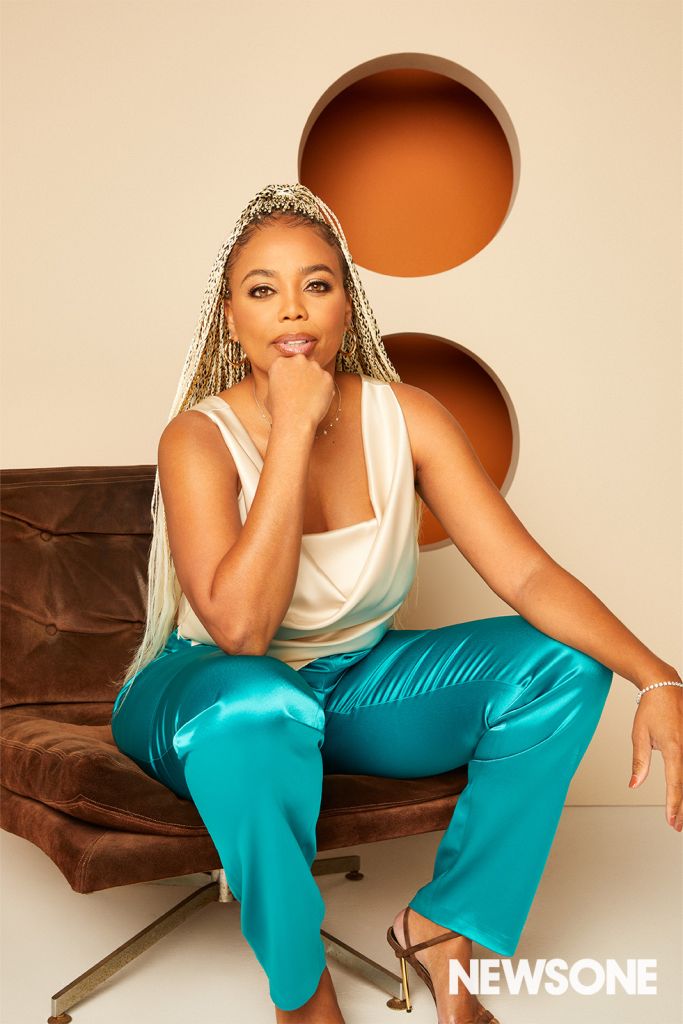
Source: Michael Rowe for NewsOne / Michael Rowe for NewsOne
Clarissa Brooks: You have run the gamut of TV writing, currently podcasting with the Unbothered Network. Have you noticed your voice transition or shift in how you write, how you do your podcasting work, how you do your TV work, and has that benefited and helped the book?
Jemele Hill: I do feel like this season of ownership in my career has actually made my voice stronger than before. I can get a lot of things accomplished, and it gives me the confidence and the empowerment to still use my voice in a very intentional way.
I’ve been very fortunate to have a lot of people who helped me nurture my career.
Having something like the Unbothered Network has put me in a much different position because I’m not only employing other people, but I also want to make sure that listeners joining this network have had tremendous added value. It’s a responsibility that I take very seriously.
It’s humbling, but it’s also very hard work. This network is a point of passion. It’s not about the money. I want to be able to amplify Black women whose voices deserve to be heard and to build a community around them.
The entire reason I started the network is this is my love letter to Black women: being able to construct a product that centers them in every way. Another key motivator for me is that I wanted Black women to run the Unbothered Network, which is the case.
Clarissa Brooks: I think mentorship has been really critical.
Jemele Hill: For me, there are several different kinds of and levels to mentorship. There are people who mentor you that you’ve never met, just by watching their careers and seeing how they move in the business. I had so many of those kinds of mentors.
Some of the best mentors I’ve ever had have been people who were not necessarily in my industry. Mentorship just looks different in a variety of ways. In the business, people like Michael Wilbon, Claire Smith, Kevin Merida, Rob Parker, the late Bryan Burwell — so many people who were either able to give me a piece of advice, handhold me through something or just listen and be a sounding board. So I’ve been very fortunate to have a lot of people who helped me nurture my career.
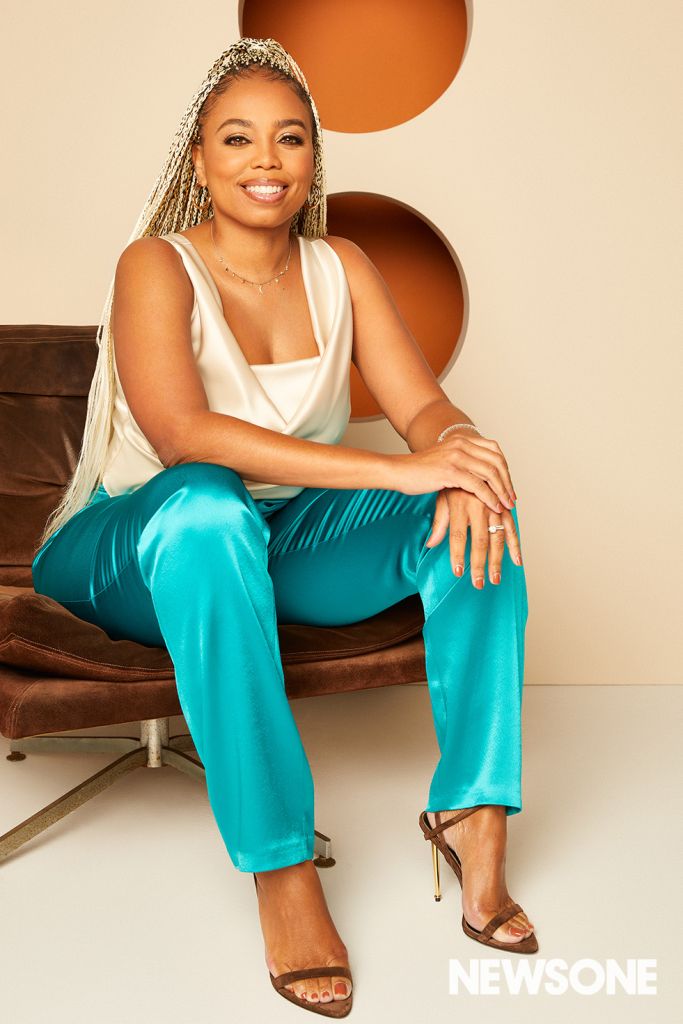
Source: Michael Rowe for NewsOne / Michael Rowe for NewsOne
Clarissa Brooks: I wanted to ask a little bit about the friendships and the sisterhood that have sustained you. I’m thinking a little bit about the Donald Trump thing. But in general, what friendships nurture you when you’re having a tough time in your career?
Jemele Hill: I’ve been really lucky to have had wonderful friends who have been so supportive and who I know are ride-or-dies. In journalism, for instance, Danyel Smith was mentoring me when she didn’t even know me because I was a huge fan of Vibe Magazine. And so when she was writing for Vibe, I read so many of her pieces. Dream Hampton, [is] somebody else [who was] mentoring me, didn’t even know me.
Clarissa Brooks: Lastly, I hope you get to write some fiction. I hope that’s in the future.
Jemele Hill: I think it’s definitely in the future. I’m toying with some ideas, and I really want that for myself; to be able to write a fiction novel that really has some impact. So we’ll see. We’ll see what I come up with.
SEE ALSO:













